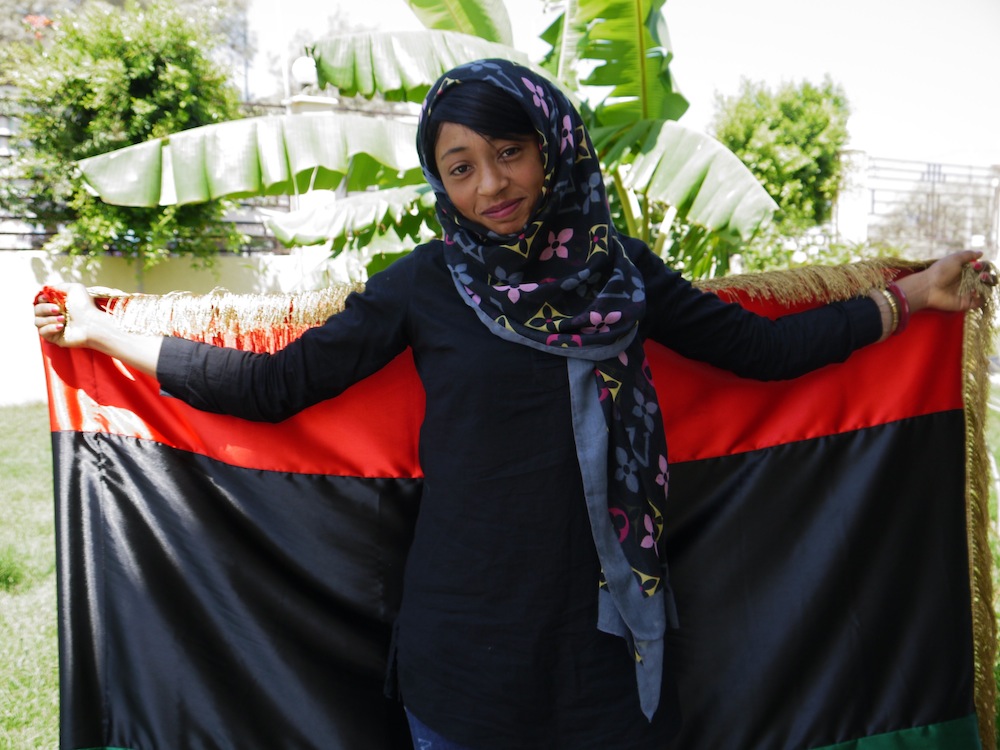By George Grant.
Tripoli, 27 July:
For some countries, winning gold . . .[restrict]medals at the Olympics is what it’s all about. For others, it really is the taking part that counts.
Few nations fall into this latter category more surely than Libya, a country of just 6 million people that has yet to bring home a medal of any colour from an Olympic games.
Given the momentous upheavals of the past 18 months, it is remarkable that Libya is sending a team to London at all. Nevertheless, against the odds, five athletes have managed to qualify, four men and a woman, to join more than 10,000 Olympians from 205 countries worldwide.
“To be representing the new Libya is such an honour”, said Ali Elkekli, the country’s hope in the men’s 85kg weightlifting competition. “The last time we flew the independence flag at an Olympics was in 1968, and I feel very proud to be raising it again”.
Appropriately enough, Elkekli’s road to qualification is a remarkable one.
Whilst most other athletes around the world spent 2011 competing and training as usual, Elkekli was out of action for eight months, living in Tripoli amidst the brutal civil war.
“Of course I wasn’t training during that time”, Elkekli says. “Nobody had such things on their minds whilst so many others were fighting and dying”.
Elkekli himself participated in numerous demonstrations against the regime of Muammar Qaddafi, risking his life in the process.
Then, in December 2011, the athlete triumphed in the Arab Games in Doha, taking gold in his category just one month after resuming training.
Five months later he did it again, winning at the African Championships in Nairobi in April, booking himself a seat on the plane to the London Olympics in the process.
Joining him in London are Ali Mabrouk El-Zaidi in the men’s marathon, Ahmed Yousef Elkawiseh in the men’s 66kg judo, Sofyan El-Gadi in the men’s 100m butterfly swim and Hala Gezah in the women’s 100m sprint.
As the only female on the team and aged just 22, Gezah admits that she is feeling the pressure of representing Libya at the Olympics.
“I’m very excited of course”, she says, “but it’s also a huge responsibility to be representing Libya at these games. After the disastrous period we’ve passed through we want to show the world that we are on the way to building a new country”.
Indeed, as far as Libyan sport is concerned, the legacy these athletes are seeking to overcome extends far further back than the events of last year.
A paranoid egomaniac until the last, Qaddafi was notoriously hostile to sportsmen and women in Libya, fearing the emergence of any rivals in the public imagination through success on the track and field.
Famously, the dictator once passed a law making it a criminal offence to announce the name of any footballer in public, save for his son Saadi, and whole teams of athletes were sometimes prevented from attending international sporting events for no discernable reason.
“I remember one time in 2002 when we were off to compete in the World Weightlifting Championships in Poland”, says Abdulsalam Wershefany, now Ali Elkekli’s Olympic trainer.
“We were actually on the plane and about to take off, when a group of men came on board and told us all to get off. Of course we couldn’t ask why; had we done so, we would have gone to prison.
“Under Qaddafi, sport was starved of investment. We didn’t receive a single dinar. It was a hobby, not a profession”.
Looking around Libya’s dilapidated sporting infrastructure, Weshefany doesn’t seem to be lying. All three of Libya’s main sports stadiums were constructed pre-1969, during the time of the king, and the headquarters of the Olympic committee feels as though it’s ready to fall down.
Since Qaddafi’s demise last October, however, the challenges have not yet gone away. The country has not had time to divert any resources into sport, with priorities such as disbanding militias and getting the economy moving taking far higher priority.
Indeed, the sporting world was served with a direct reminder of the country’s relative fragility when the president of the Libyan Olympic Committee, Nabil Elalem, was kidnapped for a week by armed assailants on 15 July.
The identity of the gunmen remains shrouded in mystery, although there has been speculation that the attack was deliberately timed to maximise disruption ahead of the Olympics and was motivated by Elalem’s previous service as deputy president of the committee under the old regime.
With the London Games taking place during Ramadan, Libya’s Olympians are also confronted with the additional challenge of whether or not to eat and drink between sunrise and sunset.
Whilst Islamic scholars in neighbouring Egypt as well as in Saudi Arabia have told athletes that it is acceptable for them to break their fast in order to compete, Libya’s Grand Mufti, Sheikh Sadik Al-Ghariani, has failed to respond to repeated requests by the country’s Olympic Committee for a similar ruling.
“If we hear nothing back then we will talk to other Arabs in London to try and find out what to do”, said Fatima Alawy, an official on Libya’s Olympic Committee. “The athletes will be training every day and this delay is too long”.
Such are the hurdles to success being confronted by this extraordinary little team even before they set foot on hallowed Olympic ground.
And can any of them win? A look at the competition makes it seem unlikely, but then that isn’t really the objective for these Games. After all they’ve been through, not only Libyans, but many others besides, will just be glad to see them there.
[/restrict]









